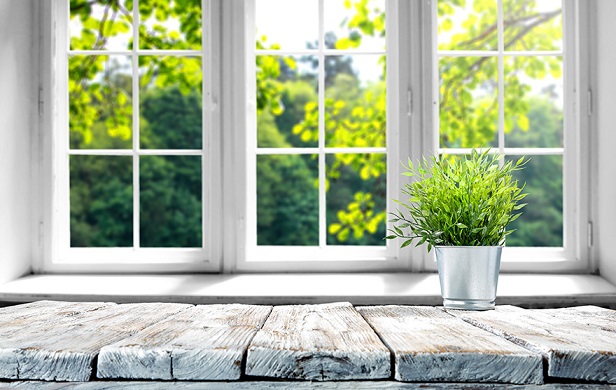Porcelain countertops have become a sought-after choice in recent years, praised for their durability, versatility, and aesthetic charm. One burning question often surfaces: Are porcelain countertops heat resistant? Let’s unravel the mystery by delving into the thermal properties of these popular countertops.
How Does Heat Affect Porcelain Countertops?
Porcelain, a ceramic material crafted by subjecting clay to high temperatures, undergoes glazing and firing to achieve its robust, non-porous surface. This unique process grants porcelain countertops their strength and resilience.
When it comes to heat resistance, porcelain countertops shine. They boast a high tolerance for heat, adeptly handling the temperature shifts inherent in cooking and baking. However, a note of caution is crucial to prevent potential damage or discoloration.
The Effects of High Temperatures on Porcelain Countertops
While porcelain countertops can brave high temperatures admirably, prolonged or extreme heat exposure may still inflict damage. Direct contact with piping hot pans straight from the stove might lead to thermal shock, potentially causing surface cracks or chips.
Placing scorching items directly on a porcelain countertop sans protection can induce thermal stress. The abrupt temperature shift from a hot item to a cooler countertop may result in cracks or discoloration over time.
Porcelain countertops exhibit superior heat resistance compared to materials like laminate or wood. Nevertheless, treating them with care and implementing preventive measures is essential to mitigating the risk of damage.
Is It Safe to Place Hot Pots and Pans on Porcelain Countertops?
While porcelain countertops can withstand heat to a certain extent, exercising caution when placing hot pots and pans directly on the surface is advisable. To shield your countertop from potential harm, utilizing trivets or hot pads beneath hot cookware is a prudent practice.
Trivets and hot pads act as a barrier, minimizing the risk of thermal shock or heat transfer. This simple yet effective measure ensures the longevity of your porcelain countertop. For avid chefs, investing in heat-resistant mats or cutting boards provides an added layer of protection during culinary endeavors.
Myth Buster: Debunking Common Misconceptions about Porcelain Countertops and Heat
Are Porcelain Countertops Prone to Heat Damage and Cracking?
A prevalent misconception surrounding porcelain countertops suggests they are prone to heat damage and cracking. While extreme heat poses a potential risk, porcelain countertops generally exhibit greater heat resistance than alternative materials.
Manufacturers have addressed the challenge of heat resistance by incorporating innovative technologies and fabrication techniques. Modern porcelain countertops often feature additional layers of heat-resistant materials, such as quartz or ceramic, bolstering their resilience against higher temperatures.
Addressing the Challenges of Heat Resistance in Porcelain Countertops
To counteract the challenges posed by heat resistance, manufacturers have employed advanced technologies and fabrication techniques. These improvements enhance the heat resistance of porcelain countertops, enabling them to endure higher temperatures without significant damage.
The Truth about Using Heat-Generating Appliances on Porcelain Countertops
Another misconception revolves around the safe usage of heat-generating appliances, like toaster ovens or coffee makers, on porcelain countertops. The answer is affirmative, with some caveats.
While these appliances can be employed on porcelain countertops, ensuring proper ventilation and insulation is crucial. Placing a heat-resistant mat or utilizing a raised platform under such appliances prevents direct heat transfer to the countertop surface, reducing the risk of thermal shock or damage from prolonged heat exposure.
Regular inspection and maintenance of the appliances’ electrical components further diminish the likelihood of unforeseen accidents that could potentially harm the countertop.
Enhancing Heat Resistance: Tips and Tricks for Maintaining Porcelain Countertops
Sealing and Protecting Porcelain Countertops against Heat Damage
To augment the heat resistance of porcelain countertops, applying a heat-resistant sealer proves effective. This sealer forms a protective barrier on the countertop surface, thwarting heat penetration and potential damage.
Choosing a high-quality, heat-resistant sealer designed explicitly for porcelain countertops is paramount. Adhering to the manufacturer’s application guidelines and reapplication intervals ensures maximum efficacy.
In addition to sealing, avoiding exposure to excessive heat for prolonged durations is essential. This entails refraining from direct contact with hot pans, pots, or heat-generating appliances without adequate insulation or protection.
Best Practices for Cleaning and Maintaining Heat Resistance in Porcelain Countertops
Proper cleaning and maintenance are pivotal for preserving the heat resistance of porcelain countertops. Adhering to best practices is crucial:
- Employ mild, non-abrasive cleaners to prevent surface scratches.
- Steer clear of harsh chemicals or abrasive cleaning tools.
- Promptly wipe up spills to avert staining or discoloration.
- Regularly clean the countertop using a soft cloth or sponge.
- Abstain from placing hot items directly on the countertop surface.
By following these best practices, the heat-resistant properties of your porcelain countertop remain intact, ensuring its enduring beauty.
Choosing the Right Cookware to Prevent Heat Transfer on Porcelain Countertops
The type of cookware you choose significantly influences the heat resistance of your porcelain countertop. Consider these tips when selecting cookware:
- Opt for cookware with heat-resistant handles to prevent direct contact with the countertop.
- Choose cookware with a thick, heat-diffusing base for even heat distribution.
- Avoid cookware with rough or uneven bottoms that may scratch the surface.
- Utilize silicone or rubber trivets and hot pads beneath hot pots and pans.
Selecting the right cookware minimizes the risk of heat transfer, safeguarding your porcelain countertop from potential damage.
Alternatives to Porcelain Countertops for Heat-Prone Kitchen Activities
Exploring Heat-Resistant Countertop Materials as Alternatives to Porcelain
If frequent engagement in heat-prone kitchen activities raises concerns about porcelain countertops, several alternative materials boast heat resistance:
- Quartz Countertops: Recognized for their ability to withstand high temperatures without damage.
- Granite Countertops: Renowned for natural heat resistance, making them suitable for cooking and baking.
- Solid Surface Countertops: Engineered materials, like acrylic or polyester, are designed to be heat resistant, providing a viable alternative to porcelain.
The Pros and Cons of Quartz, Granite, and Solid Surface Countertops
Each alternative countertop material presents a unique set of advantages and disadvantages. Quartz countertops stand out for their durability, stain resistance, and non-porous nature, ensuring easy maintenance. Granite countertops offer distinctive natural beauty and exceptional heat resistance. Solid surface countertops provide a seamless, hygienic surface but may demand more maintenance to preserve their heat resistance.
When contemplating alternatives to porcelain countertops, a thorough evaluation of your specific needs, budget, and desired aesthetic is essential for an informed decision.
Examining the Long-Term Durability and Heat Resistance of Porcelain Countertops
Despite the challenges and precautions associated with heat resistance, porcelain countertops remain a favored choice due to their enduring durability and heat resistance.
With proper care and maintenance, porcelain countertops withstand the rigors of daily kitchen activities, offering a beautiful and functional surface for years. Following manufacturer guidelines and implementing preventive measures ensures the benefits of a heat-resistant porcelain countertop in your kitchen.
In the end, the decision to opt for porcelain countertops hinges on your lifestyle, preferences, and a thorough understanding of their limitations. Are porcelain countertops heat resistant? Absolutely, but a touch of care and adherence to guidelines ensures their enduring charm in your kitchen space.


